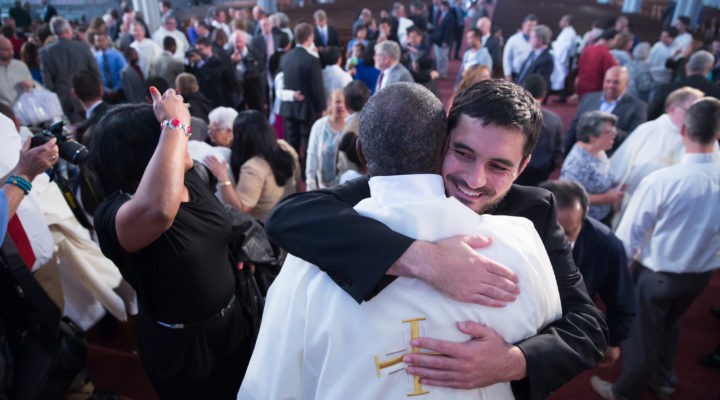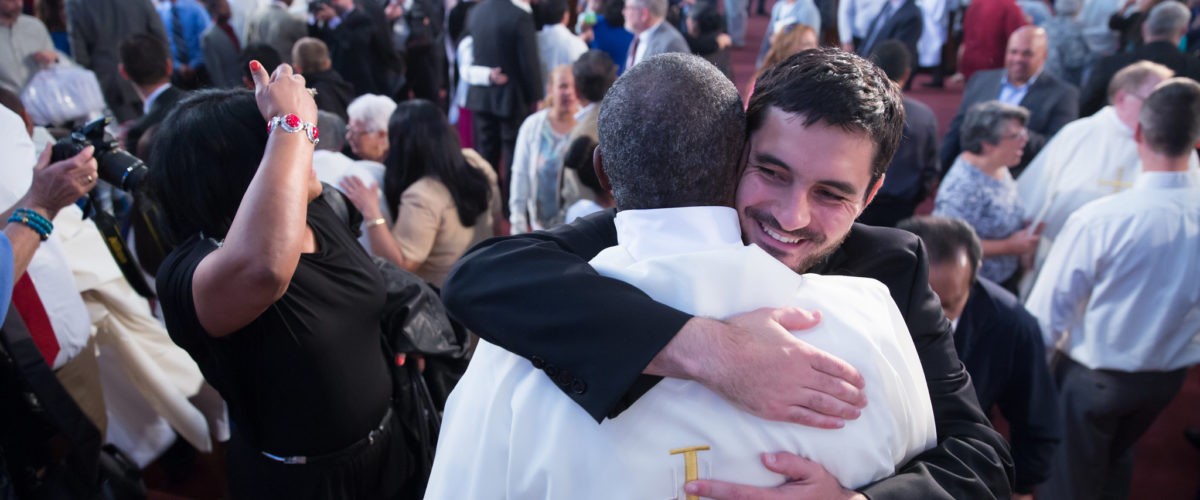Neither “worshiping local” nor commuting to church make Christians better neighbors.
Instead, it’s the frequency of attendance that brings out those neighborly attitudes and behaviors.

Kevin Dougherty
That’s the finding of a new study by Baylor and Calvin universities which urges church leaders to focus on the quality of fellowship within their houses of worship.
“Congregations are communities of like-minded people far more than they are communities of place,” said Kevin Dougherty, associate professor of sociology at Baylor and lead author of the study titled “Worshipping Local? Congregation Proximity, Attendance and Neighborhood Commitment.”
Published in the journal of the Religious Research Association, the study culls from data collected by the 2017 Baylor Religion Survey, a national study conducted every three years by the Gallup Organization.
“The more you worship, the better you feel about people who don’t worship with you,” Dougherty said. “It’s a community building experience that extends beyond the doors of the religious community.”
Dougherty spoke with Baptist News Global about the project. His comments are included here, edited for clarity.
The study looks at church commute times. Why are they increasing?
People have choices and they are increasingly choosing places of worship that aren’t geographically specific but have people they are comfortable with as fellow worshipers. And they are doing that even if it means driving further for a sense of suitable religious community.
What surprised you about that?
The fact that people are traveling further wasn’t a surprise. What was a surprise for us is that those attending congregations in their own neighborhoods did not necessarily express a stronger commitment to their neighborhood – or to their neighbors – than those who travel (to worship).
Is that why frequency of attendance is important?
What motivated this study was the question: do people who go to a congregation in their neighborhood feel differently about their neighborhood? And our findings suggest, no. Whether or not you attend a congregation near where you live is not the best predictor of how you well you feel about where you live. Instead, it’s how often you attend services, wherever you go.
That’s what you mean by “neighborliness”?
We looked at two outcomes. One was how close do you feel to your neighbors – the people you live around – and the second was how satisfied are you with your neighborhood?
So, fellowship is the key?
In in terms of how people connect, yes. To many Americans, a sense of place matters less than finding people they can connect with and do life with regardless of specific geographic location.
How do longer commute times impact these findings?
We found that the farther away people live from their place of worship the less often they attend. This is a matter of time allocation. If my place of worship is 45 minutes away, it’s unlikely I’ll be able to be there three or four times a week. Whereas if my place of worship is five minutes away, then it’s not difficult to come on Sunday mornings and evenings or to attend mid-week Bible study. So, people are making choices.
How can church leaders cater to those who travel farther for church?
One is the recognition that those individuals, without added incentive, will be less frequent attenders. Getting those individuals to any type of service other than Sunday morning will be a challenge. They must encourage members to operate as the church in their neighborhoods by establishing small groups that might draw in neighbors. Then the church becomes a hub of community building in all these other locations.
Are there any denominational factors at work?
That was an important consideration for us because past research has shown that different denominations seem to have people who will travel farther to get to a place of worship. That showed up in our findings as well. For example, with Catholics and the parish model of planting churches, one in five Catholics live within five minutes of the parish they attend. We also found that a far lower percentage of evangelicals live within five minutes of their churches. The group we found were the most willing to travel were black Protestants. When you are an ethnic minority and your place of worship is on the other side of town, you go there. The more options people have to be with people who are like themselves, the less likely you are to travel. Or if you are Jewish or the member of another religious minority. The more specialized the faith group the more likely it is to draw people from a wider geographical cross section.


